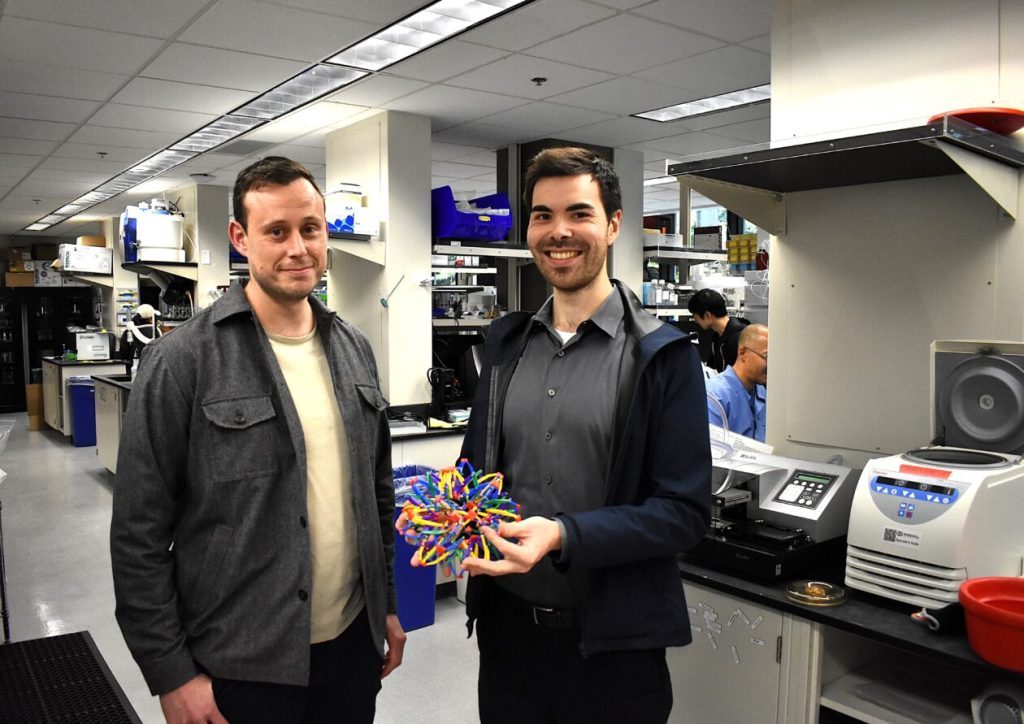Archon Biosciences, a startup spun off from the University of Washington biochemist David Baker’s lab, recently emerged from stealth mode with $20 million in financing for its technology that uses computationally designed protein structures to treat diseases like cancer. The funding round was led by Madrona Ventures and included several other investors. Archon’s proprietary protein structures, known as Antibody Cages (AbCs), are the result of years of research and development. The recent Nobel Prize won by Baker for his work in protein design confirms Archon’s belief that they are on the right track with their technology.
The AbC technology combines naturally occurring antibodies with custom-designed proteins to create a single new protein structure optimized through generative AI. These AbCs are designed to travel in a controllable manner in the body and engage with target cells more specifically. The custom-built nature of AbCs allows antibodies to bind to target cells while reducing side effects on unintended cells. The modular design platform at Archon enables quick and cost-effective iteration and optimization of designs based on incoming data. This approach allows for the creation of therapeutics more efficiently and faster than traditional methods.
Archon has already begun testing AbCs in animals and has shown promising results, with the ability to overcome issues faced by previous clinical molecules. The researchers are confident in the potential of their technology as they continue to print new AbCs every eight minutes. The start-up is currently focusing on cancer treatment as one of its primary therapeutic applications. The team at Archon, consisting of 17 full-time employees, has benefited from academic grants that have assisted in the development of their technology.
The co-founders of Archon, James Lazarovits and George Ueda, have followed a path similar to previous spinouts from the Institute for Protein Design at the University of Washington. They licensed the AbC technology from the university and founded Archon Biosciences. The researchers’ work caught the attention of investors like Madrona Ventures, who see the potential for AbCs to revolutionize antibody therapeutics. The funding will enable Archon to further develop their lead programs and move towards clinical trials in the near future.
Archon’s AbC technology is still in the early stages, but the co-founders are optimistic about its potential to offer differentiated value in therapeutics. The team hopes to have strong conviction over their lead programs within the next 18 months and move them into the clinic. With a focus on cancer treatment, Archon aims to manipulate cancer cells to either die or activate immune cells that fight cancer. The co-founders stress the importance of not just what drugs are given, but how they are given, highlighting the significance of the behavior of therapeutic molecules within the body.
Overall, Archon Biosciences represents a promising advancement in the field of protein design, with implications for the development of targeted therapies for various diseases. The company’s innovative approach to creating AbCs shows potential for improving the efficacy and specificity of drugs while reducing unwanted side effects. With the support of investors and academic grants, Archon is poised to continue its research and development efforts to bring their groundbreaking technology to the clinic and ultimately improve human health.












